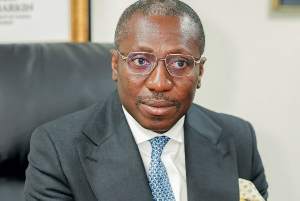According to the latest Africa Integrity Indicators report, released on Monday, Ghana’s civil service lacks integrity.
Among the factors accounting for the integrity deficiency in Ghana’s civil and public service institutions are the fact that there are no formal rules or laws to prevent conflict of interest, nepotism, cronyism, and patronage in all branches of government; and also, the fact that in practice, civil servants are sometimes not appointed and evaluated according to professional criteria and competence.
These findings, uncomplimentary as they are, come as no surprise to the Public Agenda.
Just last week (Friday, April 15), we published on our front page the story of a communications officer of the Petroleum Ministry, a certain Mr King Adawu Wellington, who went out his way to use his office to peddle party-political propaganda without fear of sanction from his superiors.
The last time we checked, he was still at post, and there is no indication that he has been sanctioned.
We have also had, and continue to have situations were civil and public servants declare partisan interests, in contravention of the civil service rules, and yet continue to hold on to their civil and public service positions.
We do not in fact need these scorecards to understand that, the now annual ritual of indicting civil and public servants in the Auditor General’s report, without imposing deterrent sanctions or instituting effective remedial measures to forestall future occurrences, is destroying public confidence and trust in these institutions.
According to the report, Ghana managed a mere 38 percentage score under ‘Civil Service Integrity’, representing weak performance, according to the scorecard.
The ‘Civil Service Integrity’ category has persistently been Ghana’s Achilles heels, with the country making the lowest score in the category since the inception of the scorecard.
In 2013 the country managed a mere 33 percent in that category, and in 2014, the last time the scorecard was put together, managed a 38 percent.
The 2016 score therefore shows no improvement in the country’s effort, if any, to improve the integrity of its civil and public sector institutions.
Ghana however performed much better under the ‘Rule of Law’ category, scoring 81 percent, and under ‘Accountability’, with a score of 69 percent. Under ‘Elections’ the country scored 65 percent, representing a moderate performance, according to the score guide.
Factors that prevented the country from achieving a higher score under the ‘Elections’ category included findings to the effect that, in practice, the agency/agencies mandated to organise and monitor national elections does not timely and publicly make available reports before and after a national election; and also that political parties do not always have equitable access to state-owned media.
The Africa Integrity Indicators (AII) is published every year since 2012 by Global Integrity in collaboration with the Mo Ibrahim Foundation and a network of more than 200 in-country researchers and journalists on the African continent.
By measuring both the existing legal framework and the “in practice” implementation, the AII data is designed to help in-country stakeholders, in and outside of government, to identify positive trends as well as areas for improvement for subsequent reform efforts. The rich data set is unique in that it assesses national-level performance on key open governance indicators throughout 54 countries in Africa, also providing a strong foundation for cross-country comparative analysis on the basis of qualitative benchmarks measuring social, economic, political and anti-corruption mechanisms across the continent.
The assessment covers de jure and de facto questions about the rule of law, accountability, elections, public management, civil service integrity, access to information, as well as social issues, from minority rights to gender, welfare, health, education and civil registration.
The indicators are currently included in the Ibrahim Index of African Governance of the Mo Ibrahim Foundation, and are also used by the World Bank’s Worldwide Governance Indicators (WGI) and by the Millennium Challenge Corporation, among others.
But the data is perhaps most relevant to in-country reformers, both inside and outside of government.
The rich data set is designed to be particularly fruitful in identifying both bright spots as well as areas for improvement at the country level.
General News of Sunday, 24 April 2016
Source: Public Agenda













